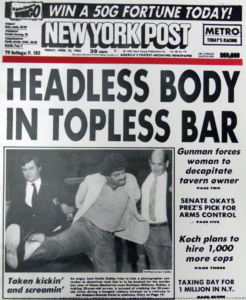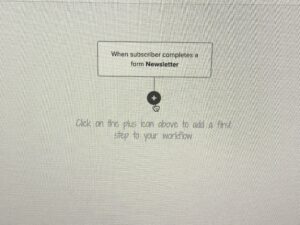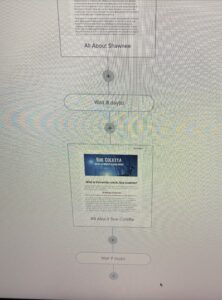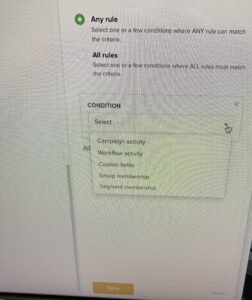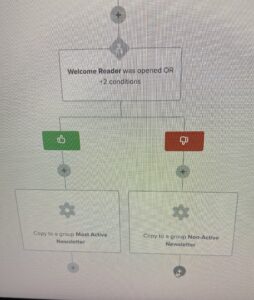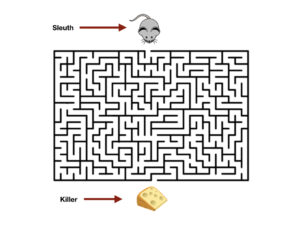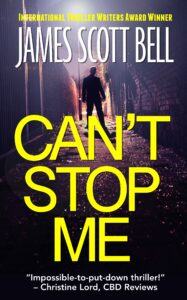By Debbie Burke
Today we welcome another Brave Author who’s submitted a first page for discussion. Please enjoy then we’ll discuss it.
Finding Grace
In a few hours, the airwaves would crackle with breaking news, and the stories would all lead with the same headline Edward Sika-Nartey was staring at. WHISTLE-BLOWER BOMBSHELL. DENAQUIN CLINICAL TRIAL DATA FALSIFIED. TWELVE DEATHS UNDER INVESTIGATION.
Edward flung the three-inch-thick report on his desk and gripped the back of his chair with both hands. “It’s worse than we thought.”
“Is it?” Stanley Adjei crossed his legs and brushed a piece of lint off his trousers.
“People have died.”
“People may have died,” Stanley said. “There’s no definitive proof that Denaquin caused these deaths.”
Edward stared at his godfather and L&N’s vice-chairman with folded brows. There was not a single wrinkle in the man’s suit. The collar of his white shirt was as pristine as when he’d stepped into the office the previous morning. If Edward hadn’t been stuck there with him, he wouldn’t have believed Stanley had spent the last eighteen hours in the office.
Edward walked around his chair and leaned his elbows down on his desk. “Thirty percent. That’s how much JP shares have fallen in two days. My source at the FDA says the director is calling a press conference later today. God knows what he’s going to say. This is a disaster.”
“We didn’t work late into the night for nothing, Edward. We knew this was coming.”
“My point is, you don’t look worried at all. It’s like we read two different reports. There’s talk of deaths. That’s very concerning.”
“Concerning, yes. But for Offet Johnson.” Stanley uncrossed his legs and sat forward. “Look, this is an unsubstantiated report from a fanatical private watchdog. The FDA will do its own investigation.”
“And if it comes to the same conclusion?”
“I don’t want to sound crude. Like you said, people may have died. But a corroborating report by the FDA would put us in an even stronger position.”
“Is the takeover under threat?”
“You’re worried about the board, I understand. But you shouldn’t. The market is already reacting. Trust me, sooner rather than later, Offet Johnson’s going to concede.”
“You’re more confident than I am.”
“Oh, he’s as stubborn as they come. But he will have no other choice.”
Edward pursed his lips and nodded. Stanley was right, as always. Perhaps this drawn-out battle with JP was finally coming to an end. The report, scandalous as it read, could only help L&N’s attempt to acquire Johnson Pharmaceuticals. It certainly couldn’t hurt. The messier Offet Johnson’s reign looked, the more eager JP’s board would be to cast aside their loyalties.
~~~
Brave Author, thanks for submitting a professional first page with clean, clear writing, free of typos and grammatical errors.
The title, Finding Grace, is intriguing because it raises curiosity in the reader’s mind about different possible interpretations.
Is the story a search to find an actual person? Who is Grace? Why is she missing?
Or does this refer to seeking a state of grace? A quest for redemption?
A title that prompts a reader to ask questions is a good start.
However, starting a story by talking about an event that would happen in several hours is not a strong hook.
Two questions come to mind:
- Are these the right characters to introduce the story?
- Is this scene the right place to begin the story?
Edward and Stanley are executives in high positions at a corporation that is trying to take over a pharmaceutical company that apparently falsified drug trials and caused deaths.
I’m not against opening in a villain’s POV and have done it in my own books.
But, to hook the reader, negative characters must be strong and compelling. Here’s what we know so far about Stanley and Edward.
Stanley is indifferent and without a conscience. After spending the night at the office, his clothing is still pristine except for a bit of lint. BA does a good job of showing that he is physically and mentally untouched by the plight of the dead victims of the drug. The reader instantly dislikes him.
The POV character Edward seems slightly less callous. He at least recognizes the deaths are worth worrying about, even though his consideration is how they affect the stock price.
Two greedy executives are not distinctive or memorable.
A recent post by Anne R. Allen talks about the trend of unlikable characters in books and films. Anne says:
“I’m bored by stories where everybody is horrible and there’s nobody to root for. I want a story to have a hero — an actual protagonist that I can care about.”
I respect Anne a lot and believe her comment is worth considering, especially when crafting the all-important first page.
Second question: is this scene the right place to begin? Let’s examine the conflict.
Two companies, L&N and JP, are involved in hostile takeover. If stock prices sink, Offet Johnson, who’s presumably the owner of Johnson Pharmaceuticals, will look bad, making the takeover easier for L&N.
At this point, the reader already doesn’t like Edward and Stanley and doesn’t know Offet. Who cares if his company fails?
In fiction, a corporate merger isn’t going to grab most readers. They want characters with heart–even if the heart is evil.
Below are some ideas on how to approach this story from different angles.
What if the protagonist is the whistle-blower? That evokes a much different reaction than cold executives. The first scene could introduce a protagonist with a goal of exposing false records and deaths that resulted.
The conflict and theme are immediately clear—whistle-blower David vs. corporate Goliath. That’s much more likely to capture readers.
Another option is to keep Edward and Stanley but have them talk about the whistle-blower. The reader becomes a fly on the wall, hearing what the enemies think about the hero and what plans they make to vanquish him/her. Here’s an example:
“Look,” Stanley said, “this is an unsubstantiated report from a fanatical private watchdog.”
Edward slapped the report. “Jane Q. Public already forced XYZ Corporation into bankruptcy because of unsafe working conditions. We shouldn’t underestimate her influence. She has to be discredited.”
The whistle-blower-protagonist is now on a clear collision course with the callous executives. That raises the reader’s curiosity and encourages them to turn the page to find out what’s going to happen next.
Another alternative is to put the focus on the victims of the drug. What if the main character is a surviving family member, seeking revenge or justice for a loved one’s wrongful death. Here’s an example that leads with the headline:
TWELVE DEATHS UNDER INVESTIGATION. DENAQUIN CLINICAL TRIAL DATA FALSIFIED.
Edward Sika-Nartey flung the three-inch-thick report on his desk and gripped the back of his chair with both hands. “It’s worse than we thought.”
“Is it?” Stanley Adjei crossed his legs and brushed a piece of lint off his trousers.
“People have died.”
“People may have died,” Stanley said. “There’s no definitive proof that Denaquin caused these deaths.”
“That won’t matter once this whistle-blower’s report hits the media.” Edward flipped open the binder to a tabbed page and read out loud, “‘Joan Johnson, brain hemorrhage, age thirty-two. Mona Riley, brain hemorrhage, age twenty-seven. William Washington, brain hemorrhage, age sixteen.’” He slapped the binder shut and glared at his godfather. “How can you be so cavalier?”
There are a couple of minor wordsmithing issues:
What are “folded brows”?
“Edward walked around his chair and leaned his elbows down on his desk.” Assuming the desk is normal height (rather than a stand-up desk), this seems to be an awkward position. Is Edward really bending at the hips and leaning over that far?
Brave Author, thank you for submitting. Your writing is very good and there is the promise of a compelling plot that will unfold eventually. I just don’t believe the best way to kick off your story is with these particular characters and this particular scene.
~~~
TKZers: any ideas and suggestions for the Brave Author?


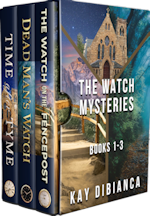

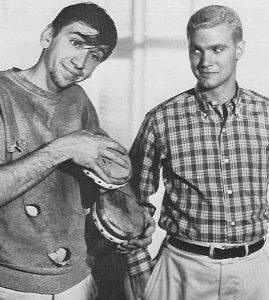
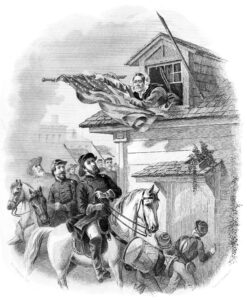



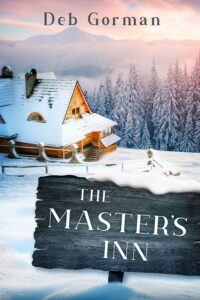

 I wanted to keep thing relatively simple–minimalist, really–so I went to Vistaprint.com and scrolled through their business card templates till I found one that I thought came close to the design I wanted. I thought the glossy black kinda popped. Everything I wanted the recipient to know was right there on the front.
I wanted to keep thing relatively simple–minimalist, really–so I went to Vistaprint.com and scrolled through their business card templates till I found one that I thought came close to the design I wanted. I thought the glossy black kinda popped. Everything I wanted the recipient to know was right there on the front. But what about all the other cool stuff? The social media platforms and my website? I solved that with QR codes on the reverse side of the card. Rather than listing all of the books I’ve written, why not let them use their cameras to zap themselves right to my website, where they’ll find everything from the various titles to how to hire me as a speaker. I don’t understand how any of the technology works, but I figure I might as well take of advantage of it.
But what about all the other cool stuff? The social media platforms and my website? I solved that with QR codes on the reverse side of the card. Rather than listing all of the books I’ve written, why not let them use their cameras to zap themselves right to my website, where they’ll find everything from the various titles to how to hire me as a speaker. I don’t understand how any of the technology works, but I figure I might as well take of advantage of it. Remember, I told y’all that I’ve got a spot open for you and your book if you want to want to appear on morning radio in the Eastern Panhandle of West Virginia. Our own Debbie Burke too me up on the offer and I think she had a good time. Last week, my buddy Jeffery Deaver stopped by for at thirty-minute chat about his books and his upcoming television series. Let me know if you’re interested!
Remember, I told y’all that I’ve got a spot open for you and your book if you want to want to appear on morning radio in the Eastern Panhandle of West Virginia. Our own Debbie Burke too me up on the offer and I think she had a good time. Last week, my buddy Jeffery Deaver stopped by for at thirty-minute chat about his books and his upcoming television series. Let me know if you’re interested!